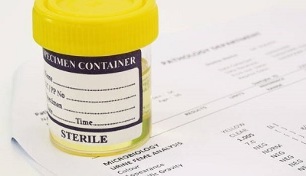If we transfer the concept of Achilles’ heel to the sexual realm represented by the strong half of human beings, then the prostate will play its role. Acute or chronic inflammation always poses a threat to health. The causes of male prostatitis vary widely, so it is not easy to treat. Even with the advancement of medicine, genitourinary pathology is still one of the most common pathologies, in addition, the disease is "young". In order to diagnose correctly, you need to know what causes prostatitis.
What is prostatitis
The term used for exclusive male diseases is based on two concepts: prostate (Latin for "prostate") and prostate cancer (Latin for "inflammation"). Prostatitis is a form of andrological pathology of the inflammatory process in the prostate gland. For many reasons, the "second heart" in the male body no longer adapts to its function, threatening to develop suppuration, loss of libido, impaired ejaculation, infertility and other unpleasant phenomena.
What causes male prostatitis

Age is not included in the list of factors that cause pathology in men. The real statistics are unknown. Considering the correct diagnosis, the registered cases indicate that approximately 35% of young people aged 30 to 40 face this diagnosis.
Among young and mature men, other causes of prostatitis are considered more important and threatening:
- Infection (genitourinary system, sexually transmitted infection) or tonsillitis;
- a sedentary lifestyle;
- Diseases of the circulatory system (venous blood stagnation);
- Interruption of sexual intercourse;
- Long-term abstinence;
- Hypothermia;
- Hormonal imbalance;
- Constipation;
- Overeating;
- Constant stress.
Among young people
Causes of chronic prostatitis in men
If infectious inflammatory bacteria and other pathogens can cause acute forms of urological pathology, then other factors can also cause chronic disease. The danger of this variant of prostatitis lies in the long and usually asymptomatic course of the disease. The characteristic signs cannot be recognized immediately, and men are reluctant to contact a specialist because the disease worsens regularly. The inflammatory process continues to develop, and the following factors can lead to the appearance of chronic prostatitis:
- Weightlifting that fills the entire bladder;
- Anatomical diseases;
- Injured;
- Bacterial infection of other organs.
Causes of acute attacks

When the infection enters the human body through the external genitalia, the result of bacterial activity is inflammation of the prostate tissue. The acute course is clinically obvious, so when diagnosing male prostatitis, problems rarely arise.
To avoid discomfort that may affect performance, it is useful to understand the main causes of acute prostatitis in men, including:
- Infectious pathogens (Streptococcus, Staphylococcus, Trichomonas, Chlamydia, Escherichia coli);
- Promiscuity sexual relations;
- Use a urethral catheter;
- Instrumental intervention when examining the urethral area;
- Hypothermia;
- Congestion, circulatory system disease.
Infectious inflammation
In terms of its nature, the etiology of male prostatitis is different, the most common being the role of pathogens. One type of bacteria can cause pathological development after sexual intercourse, while another type of bacteria can cause urethritis, pyelonephritis, and cystitis. The infectious agent enters the prostate from the urethra or rectum. Timely inspection can find the presence of Klebsiella, Enterococcus, Trichomonas and other types of bacteria that cause prostatitis.
Prostate hyperemia
This type of prostatitis is more common in mature men, while younger men are less likely to get sick. It is difficult to recognize pathology, so over time, it will become a chronic disease. Men may have no symptoms of this form of prostatitis, and only have a burning sensation in the perineum. The slight pain that radiates to the inner thighs after walking a long distance may indicate the existence of urological non-infectious pathology, which is exacerbated by the fact. What factors cause venous blood stagnation in the small pelvis?

The main causes of male prostatitis are:
- Sedentary work;
- Minimal sexual activity or termination of sexual relations;
- Hormonal imbalance; The inflammatory process of the genitourinary system, pelvic organs, rectum;
- Varicose veins and other diseases related to impaired venous blood flow;
- Constipation.
Congenital abnormalities may be the cause of stagnant venous blood and secretions in male prostatitis. Violation of the gland structure can reduce sexual desire or lead to suppression of sexual activity. Insufficient production of special hormones responsible for erection makes it difficult to ejaculate. Special secrets accumulate in the ducts, and since men's ejaculation is damaged and the tube is not completely empty, the stagnation phenomenon continues to develop.
Reason for obtaining
Urology diseases cannot be spread by themselves. However, medical practice has proved that there are risks: during sexual intercourse, the infectious agent can enter the tissues, and then the bacteria will enter the prostate, causing inflammation.
The following factors constitute a set of acquired causes of prostatitis:
- The narrowing of the urethra, resulting in decreased urine outflow and increased urethral pressure.
- The inflammatory process of the genitourinary system (urethritis) when the infection enters the prostate tissue.
- Prostate stones.
- Negative effects of professional activities.
Diagnosis of prostatitis
Only based on the results of the comprehensive examination can the urologist make a correct diagnosis for the patient. In order to determine the nature and form of the disease, the doctor will conduct a medical history check and perform routine and urological examinations. In order to understand the clinical situation and possible causes of discomfort, the specialist will perform a rectal examination of the prostate, which is a painful but extremely necessary procedure.

Regular visits to the urologist can avoid certain diagnostic procedures.
The main content of the research is to diagnose male prostatitis, involving the following activities:
- General urine analysis;
- Analysis of prostate secretion;
- Ejaculation check;
- Urethral swab;
- Ultrasound examination of the prostate;
- Biopsy.
Prostatitis treatment
The doctor can advise on how to treat urological diseases only after performing diagnostic measures. In order not to cause serious complications or delay the treatment of prostatitis, it is meaningful for the patient to use the strategy chosen by the expert. In addition, it is important to follow the recommendations. The treatment of male prostatitis will depend on the nature of the inflammatory process: infectious or non-infectious.
The general treatment plan for this disease is as follows:
- Antibacterial therapy.Taking fluoroquinolone antibiotics with unique characteristics is in a leading position among drugs that complicate male prostatitis and prevent its further development. Sometimes macrolides can be prescribed, and anti-inflammatory drugs (non-steroids) can help relieve pain.
- Physical therapy.Each method aims to improve blood circulation. For this purpose, procedures such as magnetic therapy and laser therapy, electrophoresis and therapeutic baths are used.
- Massage.This is the most effective method after medication, which helps to control inflammation. When the expert touches the area, the pain is unavoidable, but massage can help significantly speed up recovery, eliminate pus and improve the effect of antibiotics.
- Immunomodulatory therapy.Measures and funds aimed at correcting the state of the immune system are essential for full recovery. Vitamins and strengthening drugs help restore immunity, maintain and improve health, so the power seems to be able to resist unpleasant diseases and the causes of prostatitis.
- Folk remedies, prevention.These instructions are used as a supplement at the stage when the main symptoms of male prostatitis may be dealt with. After consulting an expert, herbal tea, candles and other recipes based on natural gifts should be used. It is also useful for patients to reconsider diet and diet, increase the proportion of natural products, abstain from alcohol, regularly participate in sports, and avoid nerve overwork.

























